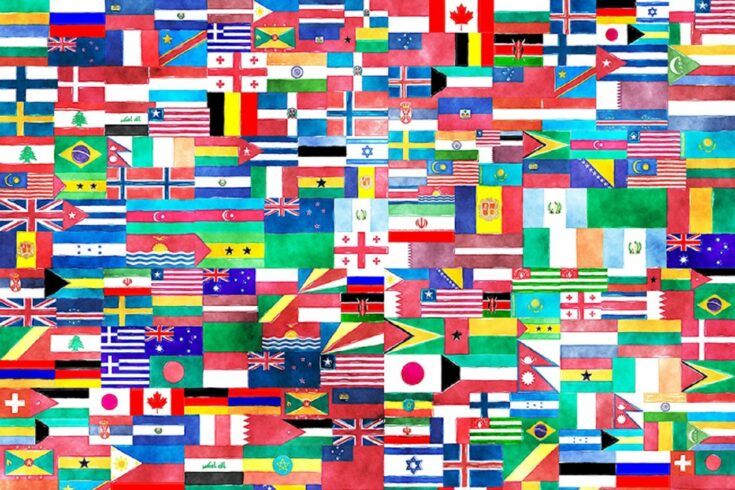The COVID-19 pandemic has presented a significant challenge worldwide that requires a global response.
UKRI has been working to strengthen our relationships with other research organisations around the globe – so we can stop COVID, together. Now more than ever international teamwork, research alliances and the need for transparent collaboration are vital.
Countries around the world adopt these ways of working by building and approving official activities like agreements, funding calls, reports, and memorandums of understanding MoU.
These official activities are a type of promise – a promise that all the countries involved will help and uphold whatever goals and objectives have been outlined and agreed to.
UKRI’s vital role
The UK has been involved in creating hundreds of these official activities, and UKRI is very active in this.
One of the most recent is the Organisation for Economic Cooperation and Development (OECD) Global Science Forum report, ‘Addressing societal challenges using transdisciplinary research’.
The OECD provides a forum in which government and policymakers from 37 different countries work together on common problems such as economic, social and environmental change.
The report, which UKRI played a critical part in creating, acknowledges the impact of COVID-19, stating:
This report looks at how transdisciplinary research…can be used to address complex societal challenges…such as the COVID-19 pandemic, as well as longer-term solutions for sustainability development.
Read the full OECD report to find out more.
Joining up the global research community
Similarly, UKRI has been instrumental in the creation of a joint statement for the Global Research Council (GRC). The council is a virtual network of national research funding agencies, with participants from over 114 countries, including the UK.
UKRI hosts the Executive Secretary of the GRC, and will co-host the ninth annual meeting in May 2021 with South Africa’s National Research Foundation. We helped to create a joint COVID-19 statement, which says:
The GRC is calling on its participating organisations and the global research community to collaborate in the fight against the virus.
[We] encourage openness in sharing research findings and data which will help ensure diagnostics, vaccines and prevention measures are developed rapidly for the benefit of every nation.
Collaboration beyond boundaries
Thousands of researchers around the world are working on COVID-19. To link them up, UKRI recently oversaw a fast-paced, coordinated agreement with the Japan Science and Technology Agency (JST).
The agreement ensured that researchers in the UK and in Japan had the chance to collaborate if they were working on similar COVID-19 research.
Through the JST J-Rapid programme, funding was made available for Japan-based researchers and UKRI-funded researchers to work together.
Following a short application window, JST awarded funding to three Japan-based researchers to join forces with UKRI-funded researchers. They will now together tackle vital research into decoding COVID-19 pathogens and tracking viral cross-species transmissions.
Find out more about the J-RAPID call.
These are just a few examples of the critical relationships that UKRI, and universities across the country, are building with the rest of the world during COVID-19.
These documents, the promises they contain and the relationships they forge are the backbone of global collaboration. Through them we support the collective research efforts around COVID-19 and share the UK’s leading research and innovation on the global stage.
Establishing a public policy observatory
The Economic and Social Research Council (ESRC) is funding the creation of a new International Public Policy Observatory, due to start in October 2020.
The observatory will support public policy decision-makers in developing strategies for responding to and recovering from the social, economic and public health impacts of the COVID-19 pandemic.
It will work in collaboration and co-production with policy actors, researchers and centres of excellence in the UK and internationally, the ESRC and other funders. The observatory will also increase understanding of the range and effectiveness of interventions and public policy responses to the pandemic.
Policy areas to be covered in its work will include:
- education
- mental health and wellbeing
- care homes and adult social care
- housing, communities and cohesion
- addressing disproportionate impacts on black, Asian and minority ethnic groups
- vulnerable individuals and communities
- living online.
Last updated: 27 April 2023

